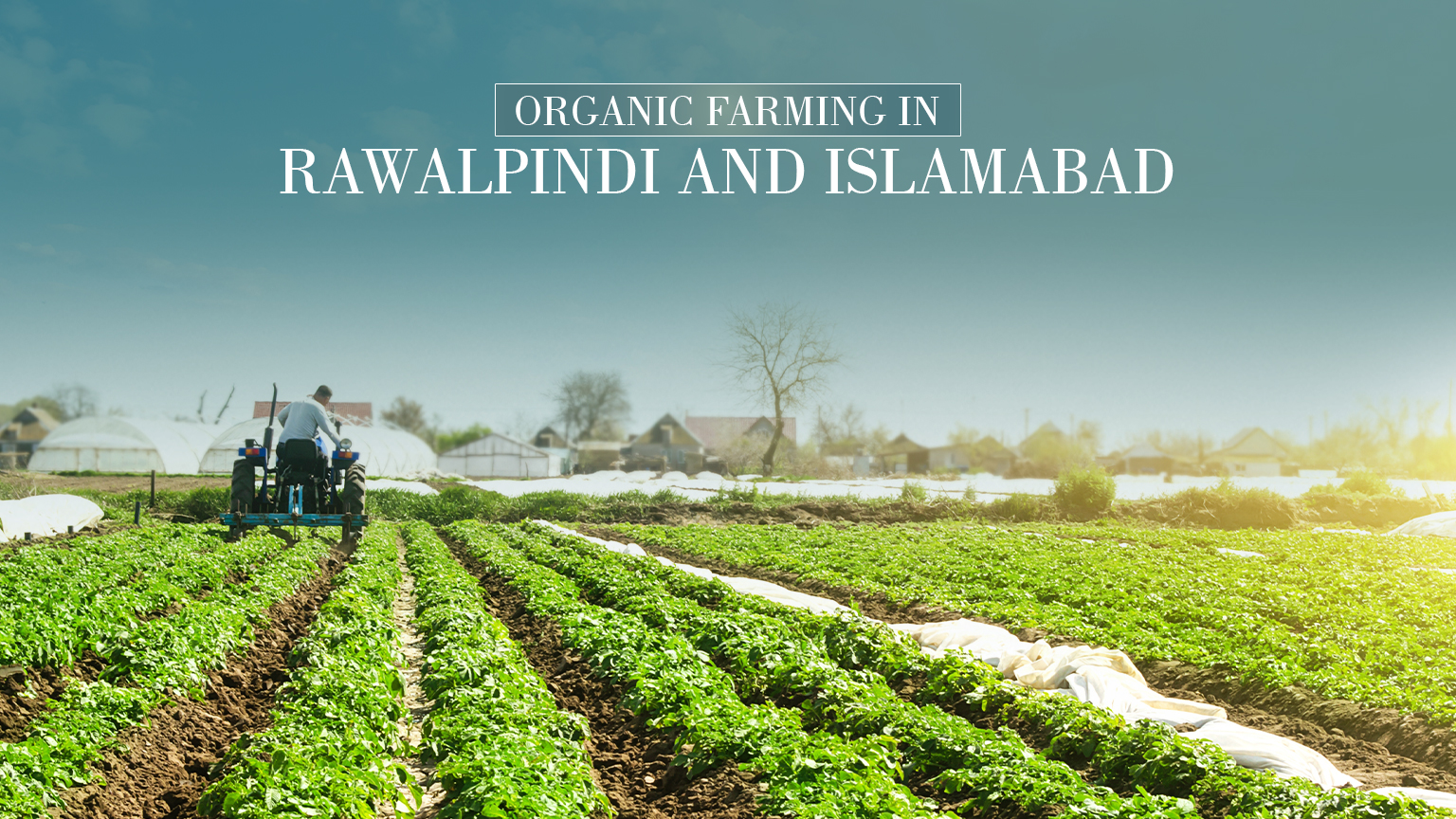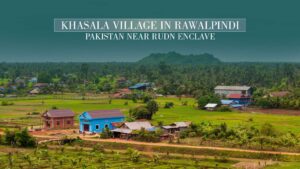Located in the midst of Rawalpindi-Islamabad, the organic farming movement has taken root, bringing a breath of fresh air to the community. Organic farming is not just a method; it’s a way of life that Rudn Enclave has embraced wholeheartedly, weaving sustainability into the fabric of the neighbourhood.
Let’s delve into the verdant world of organic farming and discover why it’s becoming a cornerstone of the community’s lifestyle.
Table of Contents
ToggleWhat is Organic Farming?
Organic farming is a sustainable agricultural approach that emphasizes the use of natural and environmentally friendly methods to cultivate crops and raise livestock. It avoids the use of synthetic pesticides, herbicides, genetically modified organisms (GMOs), and synthetic fertilizers.
Instead, organic farming relies on techniques such as crop rotation, companion planting, and the application of organic matter to enhance soil fertility and promote biological diversity.
The Trend of Organic Farming in Rawalpindi Islamabad
Organic farming with every passing day is becoming the new normal and the trend has also started to emerge in Islamad and Rawalpindi as well. Most notably some housing societies are adopting this method of farming.
At the forefront of this is Rudn Enclave, one of the best housing societies when it comes to natural beauty and preservation of nature as much as possible. Let’s have a look at how these farms work why Rudn stands out in this regard, and why organic farming is important.
1. Cultivating Naturally:
In the embrace of Rudn Enclave’s organic farms, nature takes the lead. The farms utilize natural fertilizers, eschewing synthetic chemicals that can harm both the environment and consumers.
The commitment to natural cultivation practices not only yields healthier produce but also contributes to the long-term sustainability of the land.
2. Farm-to-Table Goodness:
One of the standout features of organic farming in Rawalpindi-Islamabad is the proximity of fresh produce to residents.
The concept of ‘farm-to-table’ is not just a buzzword here; it’s a reality. Rudn Enclave’s organic farms ensure that residents have access to locally grown, nutrient-rich food, fostering a healthier and more connected community.
3. Biodiversity and Harmony:
Rudn Enclave’s organic farms are more than just plots of land; they are ecosystems. Embracing biodiversity, these farms incorporate a variety of crops, encouraging natural pest control and promoting a harmonious relationship between different elements of the environment.
This not only enhances the quality of the produce but also contributes to the overall ecological balance.
Why Rudn Enclave’s Organic Farms Are a Gem
Beyond the lush fields and the vibrant produce, Rudn Enclave’s organic farms symbolize a commitment to a sustainable and harmonious lifestyle. Here’s a breakdown:
- Environmental Stewardship: The farms embody Rudn Enclave’s dedication to environmental responsibility. By choosing organic farming practices, the community actively participates in reducing the ecological footprint, promoting soil health, and safeguarding local ecosystems.
- Community Engagement: Rudn Enclave encourages residents to actively participate in the organic farming experience. From community gardening initiatives to educational workshops on sustainable agriculture, the farms serve as a communal space for learning and growth.
- Health and Well-being: The organic produce from Rudn Enclave’s farms isn’t just delicious; it’s a powerhouse of nutrients. By prioritizing health and well-being, the community ensures that residents have access to food that nourishes both the body and the soul.
- Inspiration for the Future: The success of organic farming in Rudn Enclave serves as a beacon for other communities. It showcases the potential of sustainable agriculture in urban settings and inspires individuals to reimagine their relationship with food and the environment.
Challenges and Solutions
As with any venture, organic farming faces challenges. Rudn Enclave, however, tackles this head-on:
- Water Conservation: In a region where water is a precious resource, Rudn Enclave invests in water conservation measures. Drip irrigation systems, rainwater harvesting, and efficient water management contribute to responsible water use.
- Education and Awareness: To address misconceptions and promote understanding, Rudn Enclave organizes workshops and awareness campaigns. By fostering a deeper knowledge of organic farming, the community empowers residents to make informed choices.
- Community Support: Rudn Enclave actively involves the community in decision-making processes related to organic farming. Regular meetings and feedback sessions ensure that the residents are not just spectators but active participants in the green revolution.
The Future of Organic Farming in Rawalpindi Islamabad
Looking ahead, the future of organic farming in Rawalpindi-Islamabad is promising. Innovations such as vertical farming and aquaponics are on the horizon, offering sustainable solutions for urban agriculture.
Rudn Enclave remains at the forefront, embracing these advancements to further enhance the organic farming experience for its residents.
In Conclusion
The embrace of organic farming in Rudn Enclave goes beyond growing vegetables; it’s a testament to a community’s commitment to a sustainable, healthy, and interconnected way of life.
As the green revolution takes root, Rudn Enclave stands as a shining example of how organic farming can transform not just the landscape but the very essence of community living. So, come, explore the green fields of Rudn Enclave, where every harvest is a celebration of nature and community.







